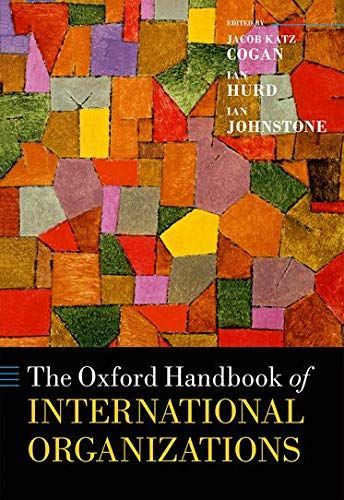
The Oxford Handbook of International Organizations
Virtually every important question of public policy today involves an international organization. From trade to intellectual property to health policy and beyond, governments interact with international organizations in almost everything they do. Increasingly, individual citizens are directly affected by the work of international organizations. Aimed at academics, students, practitioners, and lawyers, this book gives a comprehensive overview of the world of international organizations today. It emphasizes both the practical aspects of their organization and operation, and the conceptual issues that arise at the junctures between nation-states and international authority, and between law and politics. While the focus is on inter-governmental organizations, the book also encompasses non-governmental organizations and public policy networks. With essays by the leading scholars and practitioners, the book first considers the main international organizations and the kinds of problems they address. This includes chapters on the organizations that relate to trade, humanitarian aid, peace operations, and more, as well as chapters on the history of international organizations. The book then looks at the constituent parts and internal functioning of international organizations. This addresses the internal management of the organization, and includes chapters on the distribution of decision-making power within the organizations, the structure of their assemblies, the role of Secretaries-General and other heads, budgets and finance, and other elements of complex bureaucracies at the international level. This book is essential reading for scholars, practitioners, and students alike.